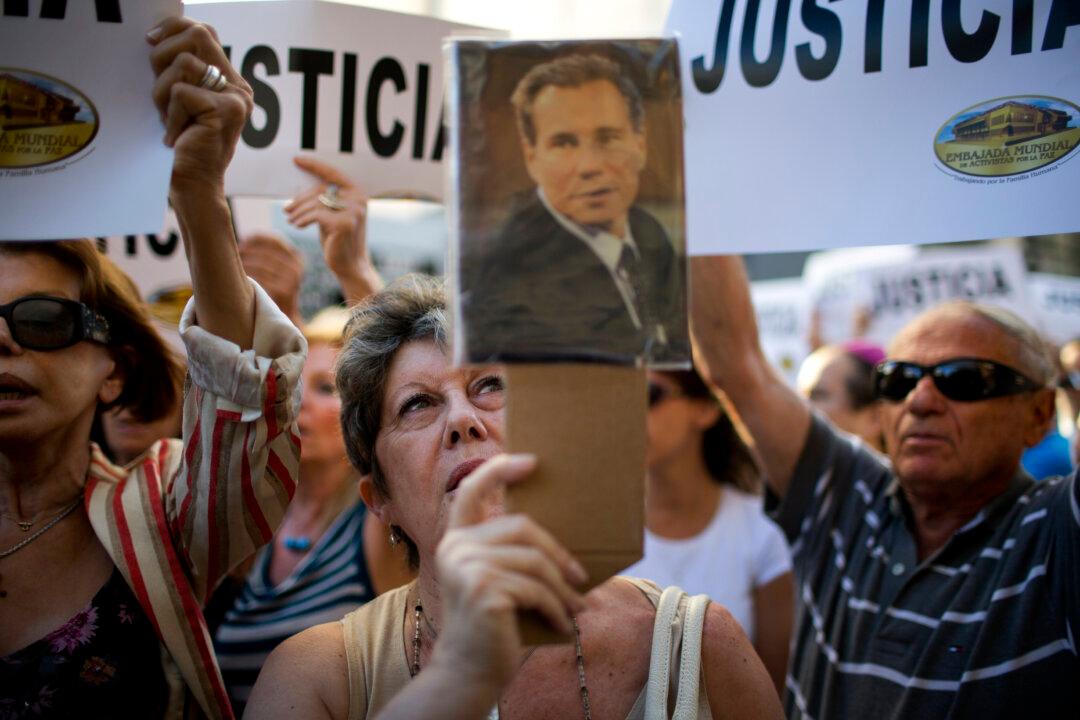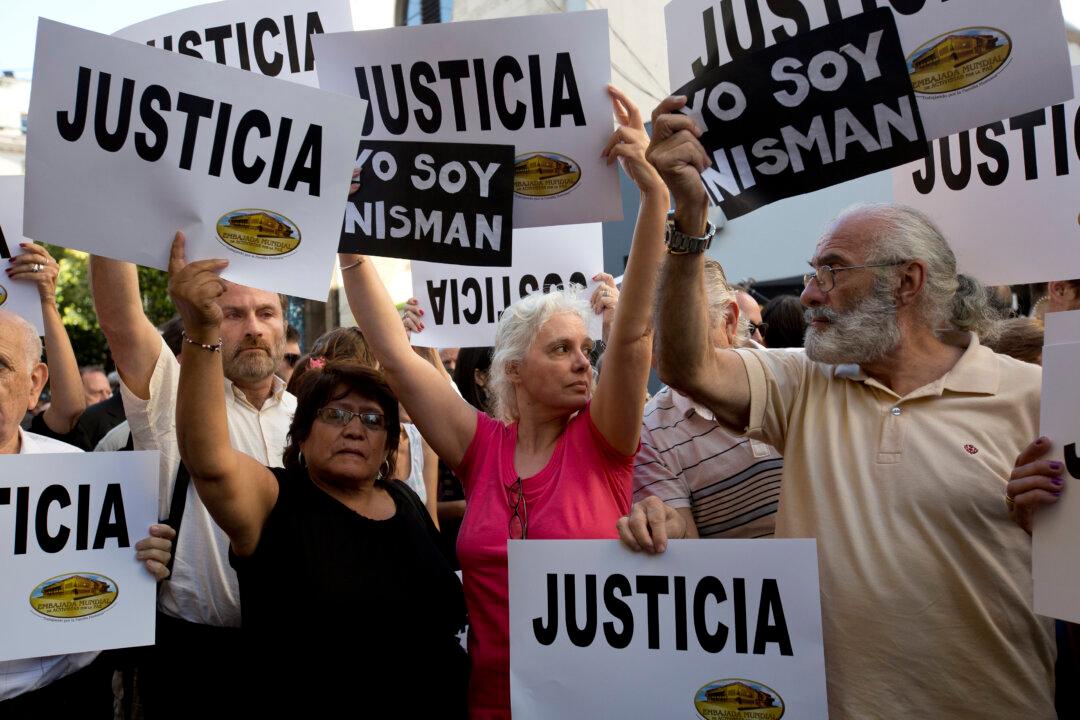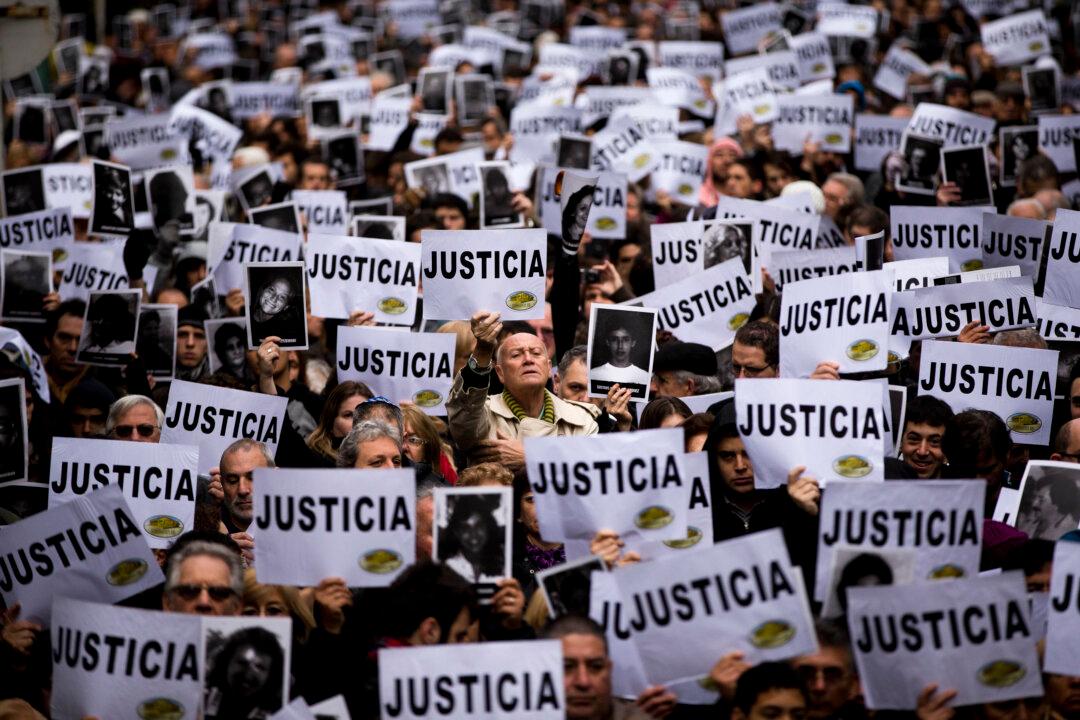BUENOS AIRES, Argentina—Argentine President Cristina Fernandez said Thursday she’s “convinced” that prosecutor Alberto Nisman’s death was not a suicide, raising more questions about the death of the man who had accused her of a cover-up in the nation’s worst terrorist attack.
In a letter published by the state news agency Telam, Fernandez said questions about Nisman’s death“have been converted into certainty. The suicide (I’m convinced) was not a suicide.”
Fernandez' letter contrasts with one she wrote Monday in which she referred to his death as a suicide.
The 51-year-old Nisman was found slumped in the bathroom of his apartment Sunday night with a bullet wound in his head. He was lying next to a .22-caliber handgun and a bullet casing.




